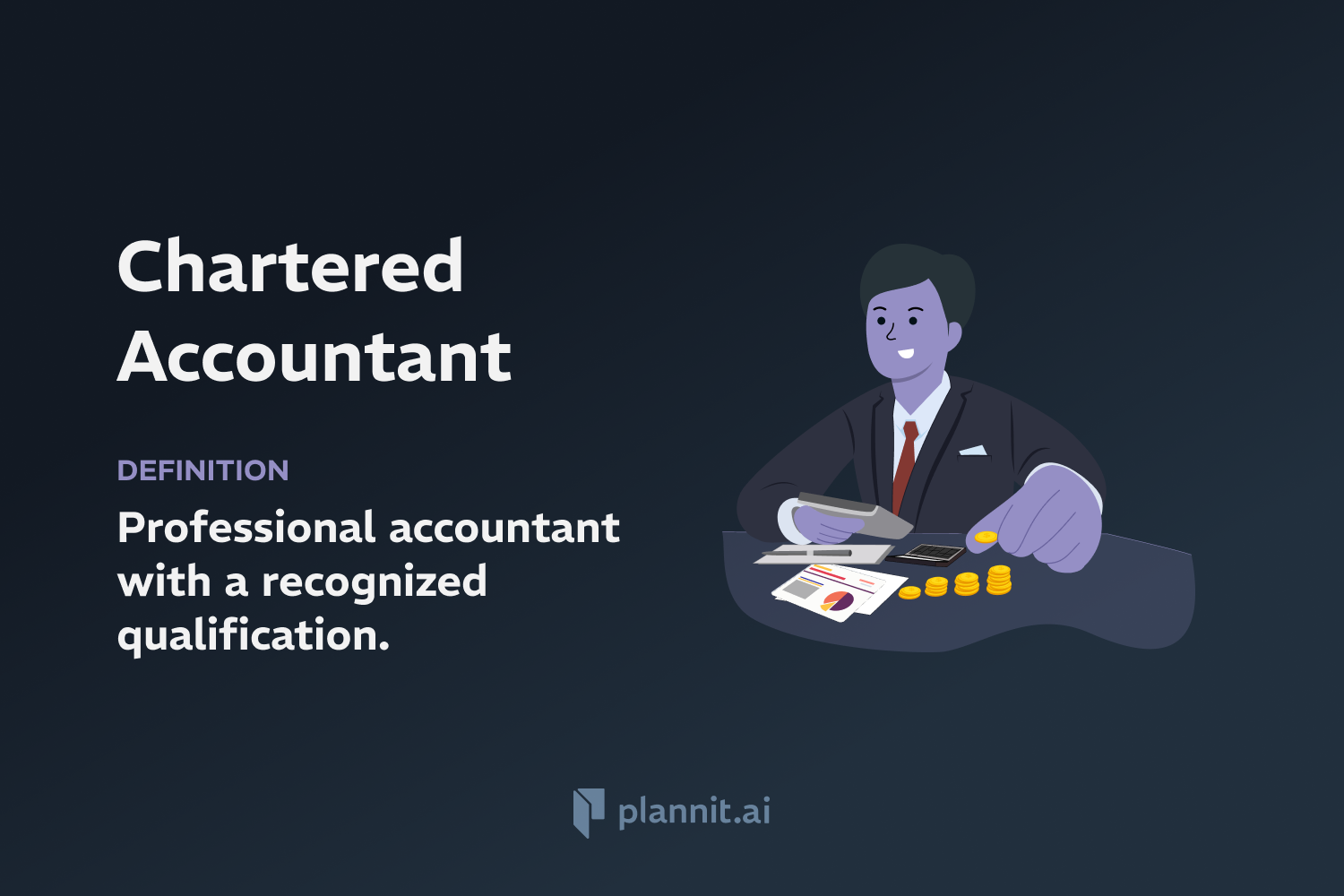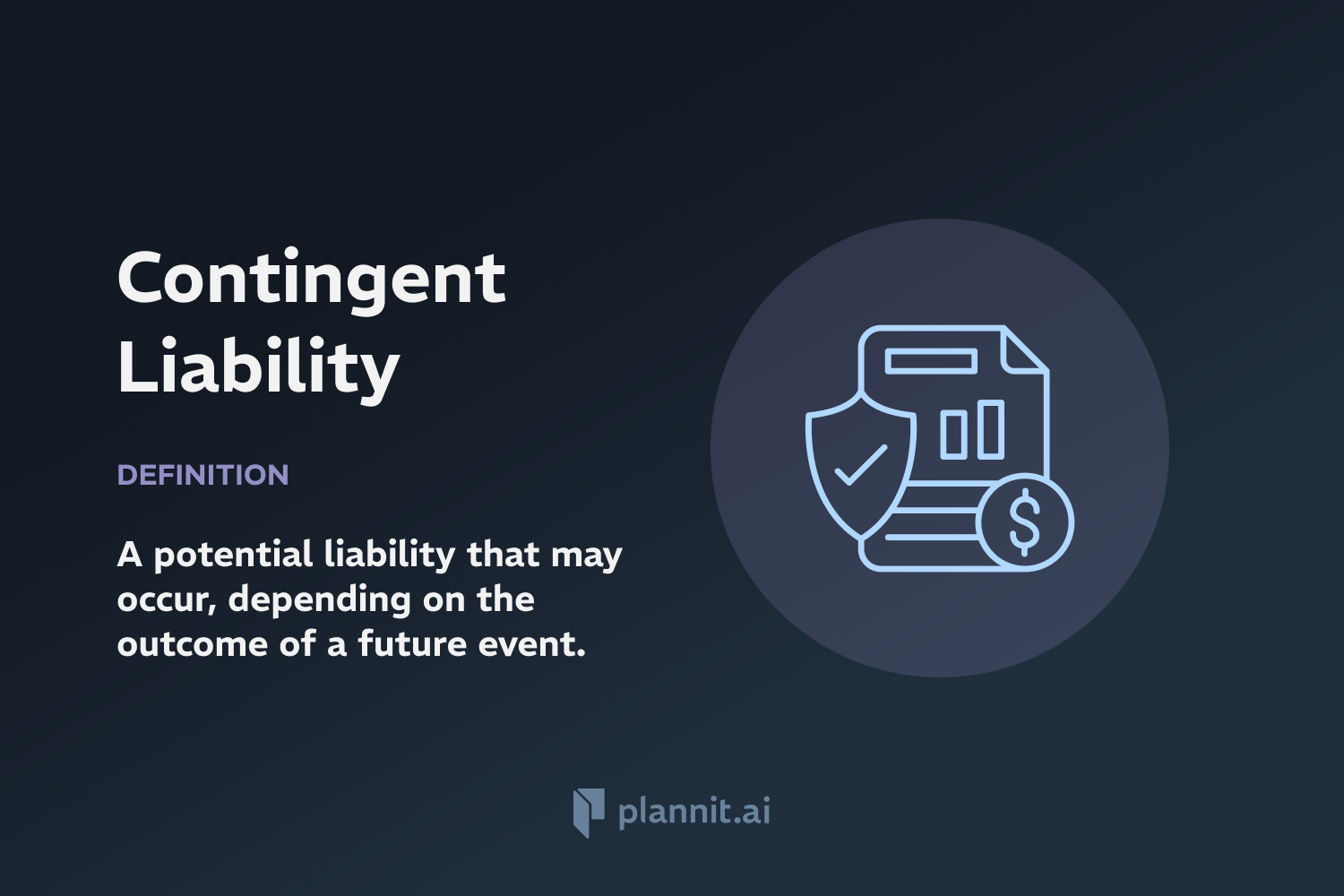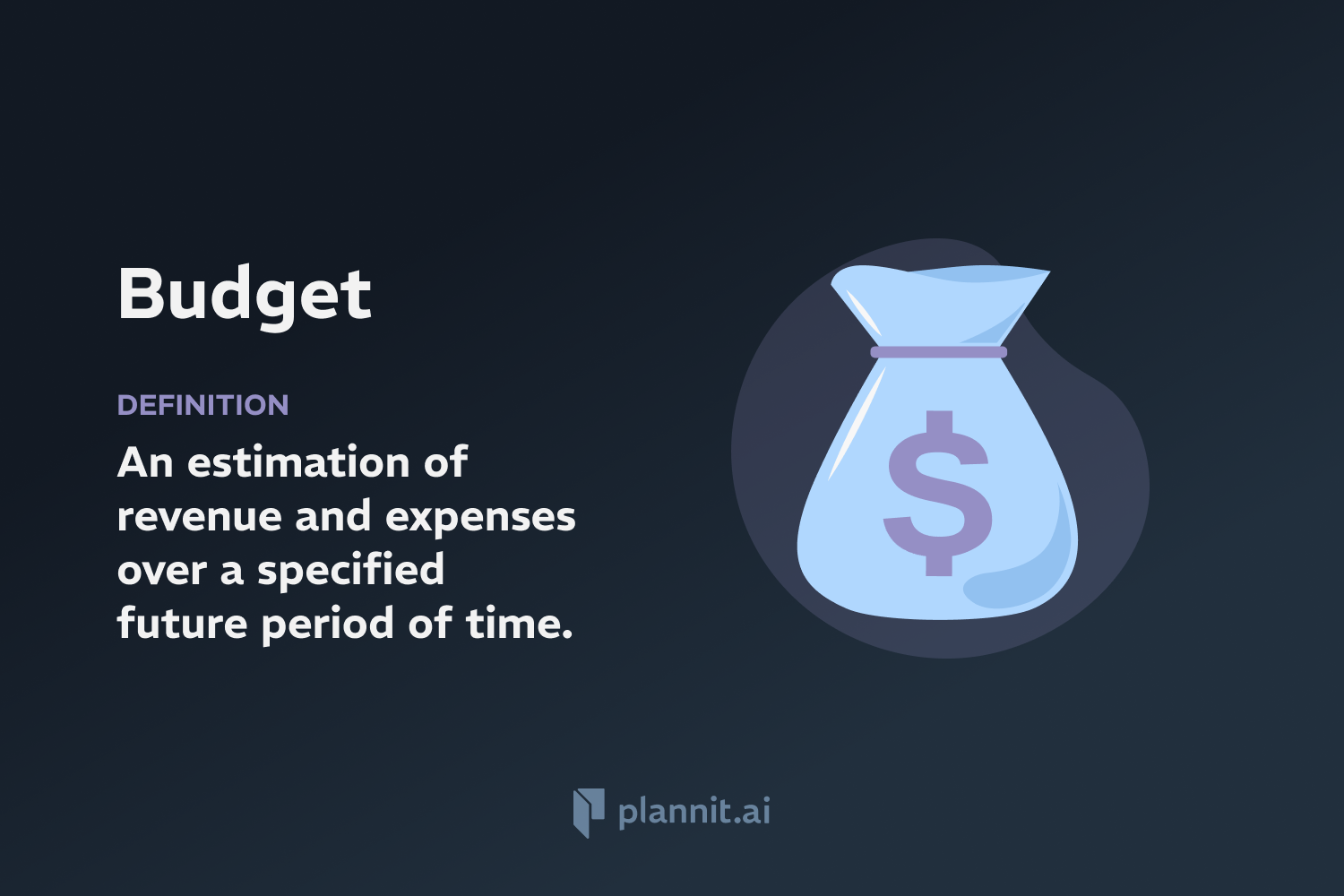Need Help With Your Business Plan?
Answer tailored questions and get a detailed business plan in minutes.
Chartered Accountant (CA): Definition & In-Depth Explanation

A Chartered Accountant (CA) is a professional designation given to accounting professionals in many countries around the world. CAs specialize in areas such as auditing, taxation, financial accounting, and management accounting. The designation is internationally recognized and is generally equivalent to the Certified Public Accountant (CPA) designation in the United States.
Purpose:
The purpose of the Chartered Accountant designation is to maintain a high level of professionalism and knowledge in the accounting industry. CAs are qualified to provide valuable financial advice, conduct audits, and offer trustworthy information about financial records, which are critical functions in business and public practice.
Example:
A business might hire a Chartered Accountant to prepare its financial statements, ensure compliance with tax laws, and provide advice on financial strategy and risk management. A CA might also perform audits to verify the accuracy of a company’s financial records and help stakeholders make informed decisions.
Related Terms:
Certified Public Accountant (CPA): A similar designation to CA, recognized primarily in the United States, certifying expertise in accounting.
Audit: The systematic examination and verification of a firm's financial and accounting records by a professional, such as a CA.
Financial Reporting: The process of producing statements that disclose an organization's financial status to management, investors, and the government.
Management Accounting: The practice of preparing management reports and accounts that provide accurate and timely financial and statistical information required by managers to make day-to-day and short-term decisions.
FAQs:
How does one become a Chartered Accountant?
Becoming a CA typically requires completing a degree in accounting or a related field, passing a professional competency examination, and completing several years of practical training under a qualified CA.
What is the difference between a Chartered Accountant and a Certified Public Accountant?
While both CAs and CPAs are qualified to perform complex accounting, tax, and auditing tasks, the CA designation is recognized in many countries part of the Commonwealth, like the UK, Canada, and India, whereas CPA is specific to the United States. The path to certification and the specific exams required also differ.
Are Chartered Accountants required to follow specific ethical guidelines?
Yes, Chartered Accountants are bound by a code of ethics and professional standards which dictate their professional conduct, ensuring integrity, objectivity, and adherence to professional behavior.
Can a Chartered Accountant work internationally?
Yes, the CA qualification is well-recognized in many countries around the world, allowing for good international mobility, especially within countries that recognize the ACCA (Association of Chartered Certified Accountants) or similar bodies.
What types of jobs can a Chartered Accountant do?
CAs can work in a broad range of roles including auditing, tax advisory, corporate finance, consultancy, and corporate law. They can work in public practice firms, businesses, government bodies, and non-profit organizations.
Get funding with a business plan that will impress investors.
Starting a New Business?



